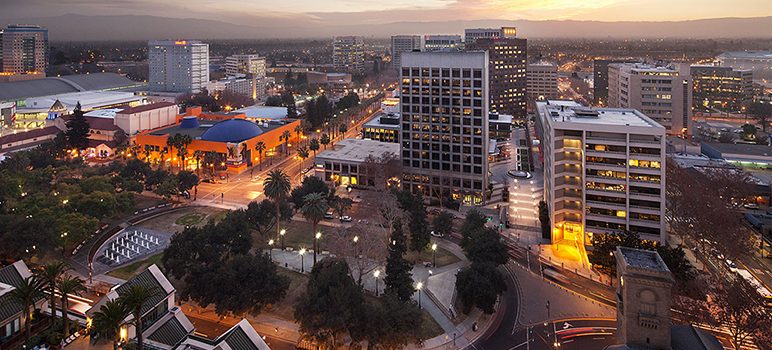Earlier this month, Mayor Sam Liccardo boasted that San Jose was having a “hot streak” because we poached Roku from Los Gatos and 8x8, HP, Bloom Energy and Micron Technology recently decided to relocate major operations here.
While I’m certainly excited about these publicly-traded companies joining Google in establishing a presence in San Jose, these aren’t exactly the companies fueling the Silicon Valley gold rush. Those would be unicorns—privately held companies with over a billion dollar valuation—and the Capital of Silicon Valley is struggling to attract them.
According to Crunchbase, there are 260 unicorns in the world. Only two of them—Automation Anywhere and Zoom Communications - are based in San Jose (NIO is a Chinese company with a US headquarters here). Even my hometown of Atlanta, which is far from a tech hub, can lay claim to two: Rubicon Global and Kabbage. While San Francisco is home to the most unicorns in the world, we’re not even second in the Bay Area, as Sunnyvale and Redwood City have us beat with three each.
And, as you can imagine, not all unicorns are created equal. Business-to-consumer companies like Airbnb, Uber, Lyft, and Pinterest—all based in San Francisco—are household names and generate the most buzz. Another household name, Lime, recently announced that it was relocating its headquarters from San Mateo to San Francisco.
I don’t know if San Jose fought to bring them here, but it’s a huge missed opportunity if we didn’t. Lime is one of the hottest companies in the United States and they are scaling with no signs of slowing down.
There are three main reasons why courting publicly-traded tech companies is the wrong approach for San Jose. First, communities are more likely to embrace homegrown companies. Tech companies are very polarizing, but a 15,000-to-20,000-employee campus by Diridon Station is more tolerable if it’s a homegrown company. To put things into perspective, the Google San Jose campus could have more employees than the global headquarters of Cisco.
Second, tech ecosystems are built around unicorns. For example, Snap, Inc. played a significant role in developing the tech scene in West Los Angeles known as Silicon Beach. Unicorns attract risk-loving individuals who would likely leave to launch their own startup or join the next hot unicorn. However, an HP employee probably values stability and would only leave for a higher salary at another publicly-traded company.
Finally, unicorns are the swiftest means of economic development. Entire cities have been revitalized because of unicorns. Much of the development in downtown Redwood City in the past four years can be attributed to former unicorn Box.
A single 1,000-employee unicorn in downtown San Jose would immediately and organically cause businesses to fill abandoned storefronts. By contrast, the massive planned Google campus will take nearly a decade to complete and might not integrate into the core of the city as seamlessly as we would like.
Ultimately, this is about how we want to brand ourselves as a city.
Every company calling San Jose home necessarily sends a signal to other companies. In the same way that teenagers flock to social media sites their parents don’t use, hot unicorns don’t want to establish a headquarters where the sexiest local tech companies are eBay, PayPal, and Adobe.
A hot streak isn’t as magical as even one unicorn.
Jarrod Jenkins received his juris doctor and masters of public administration from the University of Georgia and works as a product policy associate manager at Facebook. Outside of work, he serves on the San Jose Downtown Association board, attends Echo Church and founded the San Jose Social Club. Opinions expressed in this article are the authors’ own and do not necessarily reflect those of San Jose Inside. Want to submit an op-ed? Email pitches to
je*******@me*******.com
.


Sure, we’d like to have unicorn companies calling downtown SJ home but you’re dismissing the big tech companies far too easily here. Employees of Google, Apple, and Amazon are not like employees of the HPs and IBMs of old. There are just as many entrepreneurs in these big tech companies as in any startup. The best thing we can do to attract the sexy startups is develop downtown SJ into a vibrant place young people want to be. The unicorns will follow.
I’m not convinced the lack of a vibrant downtown is what’s keeping people from starting tech business here. It’s that the city isn’t trying to court these companies the way other cities are. San Francisco’s mid market tax credit was very controversial, but it landed Twitter, Square, and Uber. We have to get out of this mindset that things are just going to fall into our lap when a Google satellite campus arrives.
> Courting Publicly-Traded Companies is Wrong Approach for ‘Capital of Silicon Valley
An interesting commentary on “unicorns”, and government “courting” of marquee tech companies is too close to cronyism and central planning for my taste, but I really don’t get the point about “how we want to brand ourselves as a city” is a front burner issue.
Can’t we just fix the potholes and put all the nomadic grifters on reservations?